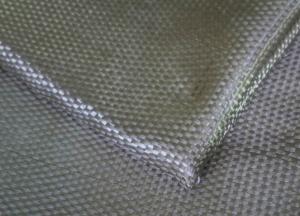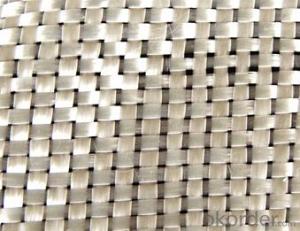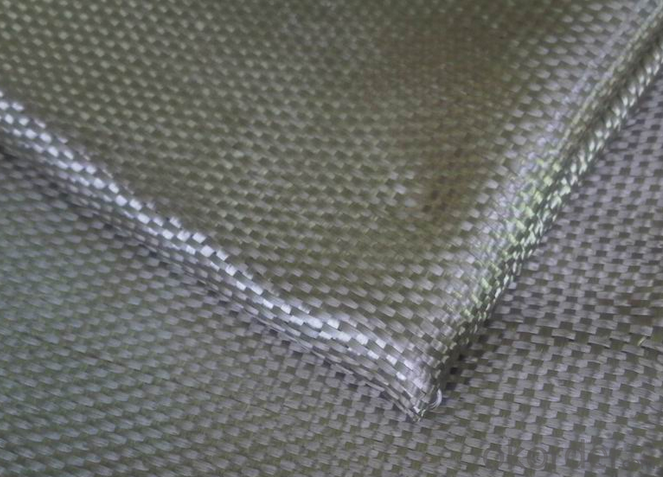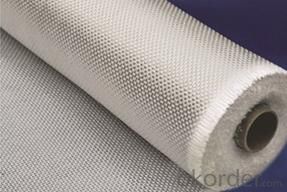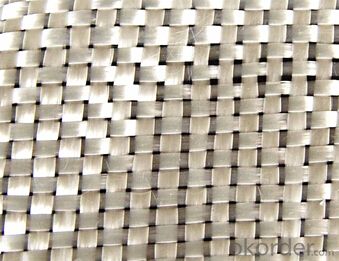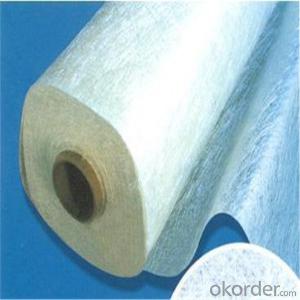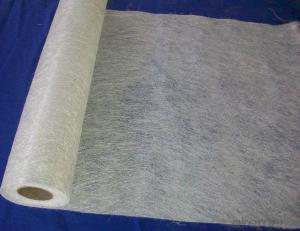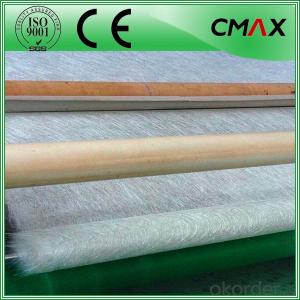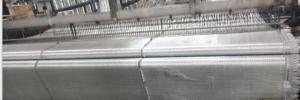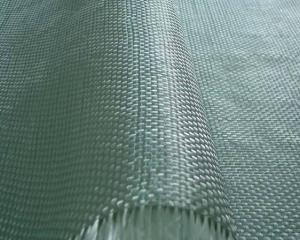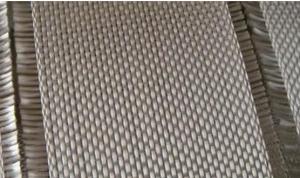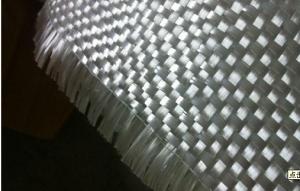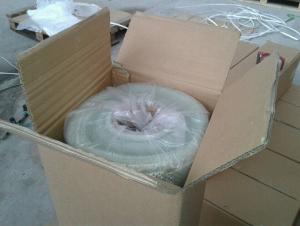Fiberglass Mat Tissue e-glass Fiberglass Woven Roving, 270g, 1270mm
- Loading Port:
- Shanghai
- Payment Terms:
- TT or LC
- Min Order Qty:
- 5000 kg
- Supply Capability:
- 300000 kg/month
OKorder Service Pledge
OKorder Financial Service
You Might Also Like
Structure of woven roving Description
Glass woven rovings are bidirectional fabric by direct rovings in plain weave pattern. They are applicable for hand lay-up, winding and compress molding process, suitable for manufacturing tank, boat, automobile parts and other FRP products.
1,high strenth,corosion and resistence
2,consistent thickness,no fuzz
3,rapid impregnating
Main Features of the woven roving
1)Drapes well to suit the surface of intricate moulds
2)Fast wet-through and wet out
3)Easy handing and better appearance of the composite parts
4)Compatible with Unsaturated polyester resin
5)Very high laminate strength properties
Woven roving Images
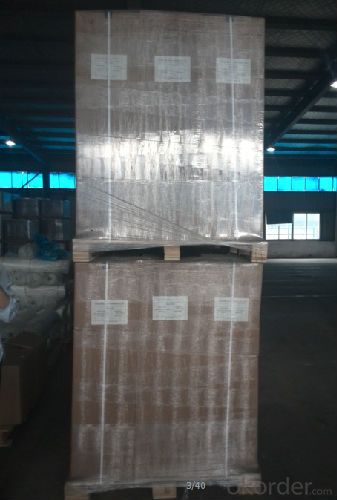
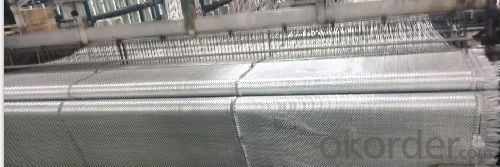
Woven roving Specification:
Normal type | EWR800 | EWR400 | EWR300 | EWR500 | EWR600 |
Thickness (mm) | 0.8 | 0.4 | 0.3 | 0.5 | 0.6 |
Density(warpxweft) (end/cm) | 1.8x1.5+/-10% | 3.6x3.2+/-10% | 4.6x4.1+/-10% | 2.2X2.0+/-10% | 2.6X2.4+/-10% |
Tex (warpxweft) | 2400x2400 | 600X600 | 300x400 | 1200x1200 | 1200X1200 |
Moisture content(%) | <0.2% | <0.2% | <0.2% | <0.2% | <0.2% |
Loss on ignition(%) | 0.4 – 0.8 | 0.4-0.8 | 0.4-0.8 | 0.4-08 | 0.4-0.8 |
Width(cm) | 125+/-1 | 125+/-1 | 125+/-1 | 125+/-1 | 125+/-1 |
Weight (g/m2) | 816+/-41 | 408+/-32 | 300+/-15 | 500+/-25 | 600+/-30 |
Weight per roll(kg) | 45 | 46 | 50 | 45 | 45 |
Glass | E-glass | E-glass | E-glass | E-glass | E-glass |
FAQ of woven roving:
Delivery Detail: 15-21days
Other spec. can be custom made as per customer's request.
Application of Fiberglass Woven Roving:
a) boats ,vessels ,plane
b) automotive parts ,furniture and sports facilities
c) resins system,such as polyeser,vinylester and epoxy resins
- Q: Can fiberglass mat tissue be used for lightweight construction?
- Fiberglass mat tissue is a fantastic option for lightweight construction. This thin and lightweight material is composed of glass fibers that are randomly arranged and held together with a binder. It is commonly utilized as a reinforcement material in composite laminates and is renowned for its impressive strength-to-weight ratio. When it comes to lightweight construction, where minimizing weight is crucial, fiberglass mat tissue is an excellent selection. Its minimal weight adds little burden to the structure while still providing ample strength and durability. The random arrangement of fibers in the mat tissue guarantees even distribution of the load, further enhancing its strength properties. Furthermore, handling fiberglass mat tissue is a breeze, and it can be effortlessly molded into various shapes and forms. Its flexibility makes it suitable for lightweight construction applications such as creating lightweight panels, wall partitions, and roof structures. The material can also be combined with other lightweight materials like foam cores or honeycomb structures to further elevate its lightweight characteristics. In summary, fiberglass mat tissue is an adaptable material that can be effectively employed in lightweight construction. Its lightweight nature, coupled with its strength and durability, make it a fitting choice for a wide range of applications where weight reduction is a top priority.
- Q: Can fiberglass mat tissue be used for electrical transformers?
- No, fiberglass mat tissue cannot be used for electrical transformers. Electrical transformers require materials with specific electrical insulating properties, such as paper or oil-impregnated materials, to ensure efficient and safe operation.
- Q: Is fiberglass mat tissue suitable for outdoor applications?
- Yes, fiberglass mat tissue is suitable for outdoor applications. Fiberglass mat tissue is made from woven fiberglass strands that are held together with a binder. This material is highly resistant to water, weather, and UV radiation, making it ideal for use in outdoor environments. It can be used in various outdoor applications such as roofing, insulation, and construction. The waterproof and weatherproof properties of fiberglass mat tissue ensure its durability and longevity when exposed to the elements. Additionally, it is lightweight and easy to handle, making it a versatile choice for outdoor projects.
- Q: Can fiberglass mat tissue be used for waterproofing?
- Yes, fiberglass mat tissue can be used for waterproofing. It is commonly used as a reinforcement material in waterproofing systems, such as for roofs, walls, and foundations. The fiberglass mat tissue is impervious to water and helps to provide an additional layer of protection against moisture intrusion.
- Q: Can fiberglass mat tissue be used for electrical insulation?
- Yes, fiberglass mat tissue can be used for electrical insulation. Fiberglass mat tissue is a non-woven fabric made from fine glass fibers, and it has excellent electrical insulation properties. It is capable of withstanding high temperatures and has a high dielectric strength, making it suitable for various electrical applications. It is commonly used as an insulation material in electrical transformers, motors, generators, and other electrical equipment. The fiberglass mat tissue provides a barrier that prevents the flow of electrical current and protects the components from electrical shocks or short circuits. Additionally, it is also resistant to moisture, chemicals, and UV radiation, further enhancing its suitability for electrical insulation.
- Q: How does the strength of fiberglass mat tissue compare to other reinforcement materials?
- The strength of fiberglass mat tissue is comparable, if not superior, to other reinforcement materials. It offers excellent tensile strength, high resistance to corrosion, and good thermal insulation properties. Additionally, it is lightweight, flexible, and cost-effective, making it a popular choice in various industries such as construction, automotive, and aerospace.
- Q: Can fiberglass mat tissue be used for attic insulation?
- Fiberglass mat tissue is not typically used as a primary insulation material for attics. While it does offer some thermal resistance, it is generally designed to be used in conjunction with other insulation materials, such as fiberglass batts or blown-in insulation, to enhance their performance. Fiberglass mat tissue is often used as a facing material for insulation products, serving as a vapor barrier or as a reinforcement layer. It can help improve the durability and moisture resistance of the insulation, but its main purpose is not to provide significant thermal insulation on its own. When insulating an attic, it is more common to use materials specifically designed for thermal insulation, such as fiberglass batts, cellulose, or spray foam insulation. These materials have higher R-values and are more effective at reducing heat transfer, which is crucial for maintaining a comfortable indoor temperature and energy efficiency. In summary, while fiberglass mat tissue may have some insulating properties, its primary role is to enhance the performance of other insulation materials rather than being used as the sole insulation for an attic.
- Q: How is fiberglass mat tissue different from fiberglass cloth?
- Fiberglass mat tissue and fiberglass cloth differ primarily in their construction and application. Fiberglass mat tissue is a non-woven material made of randomly oriented glass fibers bonded together with a binder. It is typically thinner and lighter than fiberglass cloth. Mat tissue is commonly used as a reinforcement layer in composite materials, providing strength and stability. On the other hand, fiberglass cloth is a woven fabric made of individual glass fibers arranged in a grid-like pattern. It is generally thicker and heavier compared to mat tissue. Fiberglass cloth is commonly used for applications requiring high strength and stiffness, such as boat building, aerospace, and automotive industries. In summary, the key differences between fiberglass mat tissue and fiberglass cloth lie in their construction, weight, and intended application. Mat tissue is a non-woven, lighter material used for reinforcement, while cloth is a woven, heavier fabric suitable for applications requiring high strength.
- Q: How does fiberglass mat tissue contribute to the strength and durability of composite materials?
- Fiberglass mat tissue enhances the strength and durability of composite materials by providing reinforcement and structural integrity. The mat tissue consists of randomly arranged fibers that are bonded together, creating a strong and flexible matrix. This matrix acts as a support system, distributing stress and load across the material, thereby preventing cracks and fractures. Additionally, the fiberglass mat tissue acts as a barrier against moisture and other environmental factors, protecting the composite material from degradation and ensuring long-lasting performance.
- Q: Is fiberglass mat tissue suitable for insulation in HVAC ducts?
- Fiberglass mat tissue can be used to insulate HVAC ducts, as it possesses excellent thermal and acoustic properties. It is a widely utilized material for insulation, thanks to its ability to endure high temperatures and resist moisture. This makes it perfect for applications in ductwork. By reducing heat transfer and preventing condensation buildup, fiberglass mat tissue provides effective insulation for the ducts. Moreover, it is lightweight, simple to install, and has a lengthy lifespan. Consequently, it is a cost-effective option for HVAC insulation. In conclusion, fiberglass mat tissue is a dependable and appropriate choice for insulating HVAC ducts.
Send your message to us
Fiberglass Mat Tissue e-glass Fiberglass Woven Roving, 270g, 1270mm
- Loading Port:
- Shanghai
- Payment Terms:
- TT or LC
- Min Order Qty:
- 5000 kg
- Supply Capability:
- 300000 kg/month
OKorder Service Pledge
OKorder Financial Service
Similar products
Hot products
Hot Searches
Related keywords
